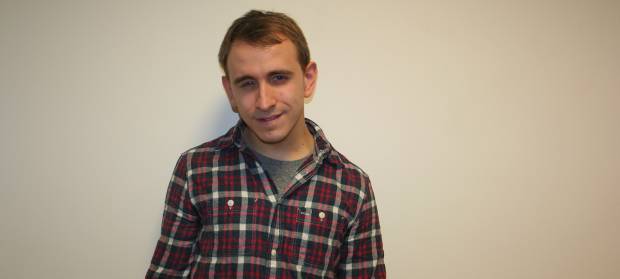We should challenge films like the latest Inbetweeners, that use offensive words like ‘retard’ to describe people. Having more people speaking out against it and more people with a learning disability on TV will help achieve this.
Last week I went to see the new Inbetweeners film, and I was disappointed that two of the characters used the r-word twice during the film.
As I sat there with my husband it made me feel very uncomfortable because the r-word is very offensive to people with a learning disability.
It can make us feel like second class citizens and that we’re not human. It makes me angry that lots of people are going to go and see this film at the cinema and they will come away thinking that it is ok for them to go and use the r-word.
This is really unacceptable.
In the future, film scriptwriters should be more careful with the language they use, as they may not realise how offensive this term is to people like me, who have a learning disability.
If there were more people with a learning disability in the media, being interviewed on radio or TV, or playing characters in TV shows, this would help change people’s attitudes about people with a learning disability. They would realise that using the r-word is wrong.
This is why I welcome the BBC’s announcement that it plans to hire more people with a disability, including those with a learning disability, by 2017. I think it will be fantastic to see more people with a learning disability on and off screen right across the BBC so they can lead by good example.
Earlier this week I was interviewed at my local radio station Surrey Hills Radio by the manager of the station, Andy Newbold. Andy is also my friend and during the interview he asked me about how Mencap helps people with a learning disability and the challenges they face.
I talked about Mencap’s Hear My Voice campaign and why it’s so important for the voices of people with a learning disability and their families to be heard by MPs and candidates leading up the General Election next year.
I also talked about some of the issues in my life I’ve faced as someone with a learning disability. It was a really good experience and I enjoyed it.
Progress is being made in having more people with a learning disability on TV. In 2006, Eastenders had a story about Janet Mitchell, a baby with Down’s syndrome. Similarly, the reality TV show The Undateables was controversial, but it did help change people’s attitudes towards people with a disability.
But there are many people with a learning disability who aren’t represented in the media at all, and this is what we need to change.
I welcome the BBC’s announcement that it plans to hire more people with a learning disability by 2017. I think it will be fantastic to see more people with a learning disability on and off screen.
